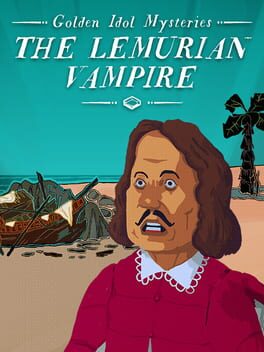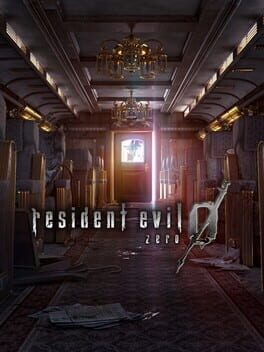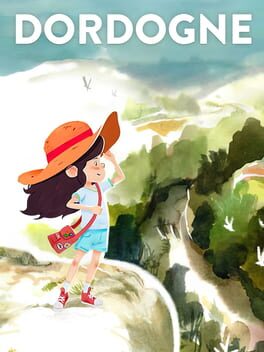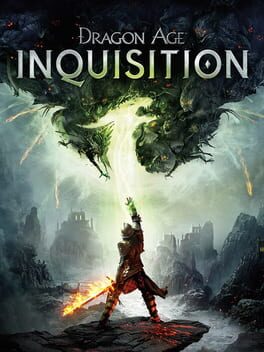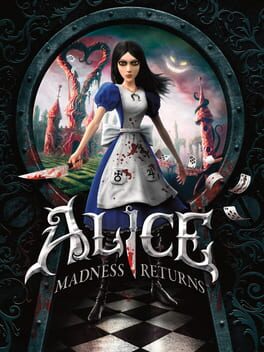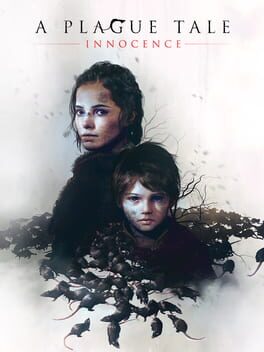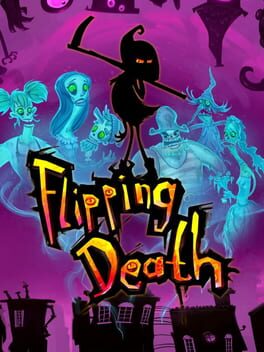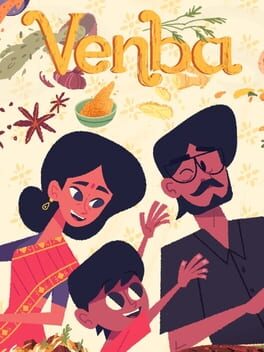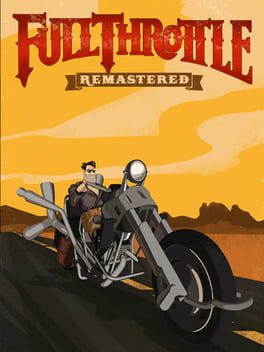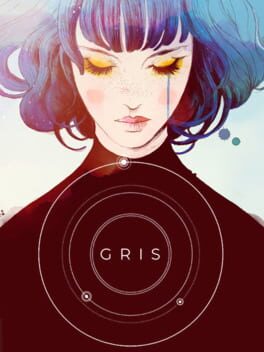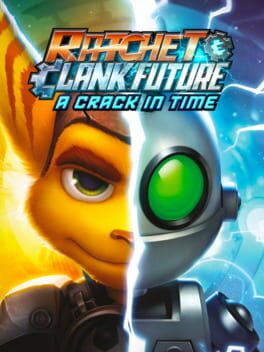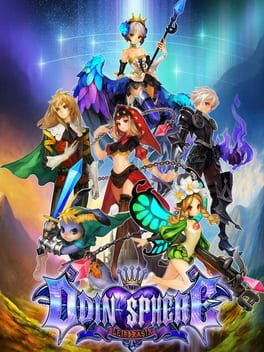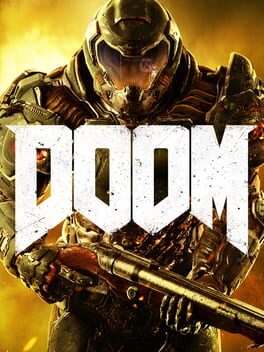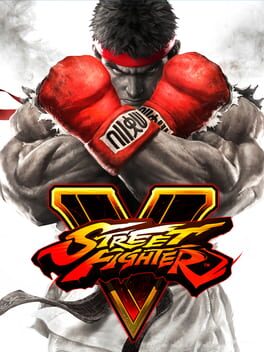Acquiescence
Man, that last case is some bullshit. I pieced together the story events and understood what was going on easily enough, but putting the right words in the right spaces proved troublesome. I don't think the game is succeeding in the intended way if the real challenge is found in using trial and error to get the exact wording down when formulating a sentence. There were just too many potential variations with the noun selections. It didn't feel fair to me. And the hint system was useless because it was telling me things I already knew, so in the end I had to resort to an online guide. Yes, my pride took a major beating as a result.
Otherwise, business as usual. A really intriguing story told via only brief cutscene snippets and dialogue exchanges. Golden Idol does so much with so little. Analysing a scene, taking note of character interactions/visual cues and paying attention to all the minute details makes one feel like a true detective. I think the main game comfortably surpasses the DLC though, because it has plenty of those "Eureka!" moments, and when they come, piecing together the sentences in the Thinking screen usually goes smoothly. Also, I prefer the smaller-scale cases of the main campaign compared to the fewer-in-quantity-but-much-broader-in-scope cases of the DLC.
Otherwise, business as usual. A really intriguing story told via only brief cutscene snippets and dialogue exchanges. Golden Idol does so much with so little. Analysing a scene, taking note of character interactions/visual cues and paying attention to all the minute details makes one feel like a true detective. I think the main game comfortably surpasses the DLC though, because it has plenty of those "Eureka!" moments, and when they come, piecing together the sentences in the Thinking screen usually goes smoothly. Also, I prefer the smaller-scale cases of the main campaign compared to the fewer-in-quantity-but-much-broader-in-scope cases of the DLC.
2016
It's called Resident Evil 0, because it's zero fun to play! Ba dum tsh.
This is my first rodeo through Resident Evil 0. Its reputation precedes it, so I knew going in that I was in for a lesser experience, but even with expectations set accordingly, it still managed to disappoint. What can one say about this game's fundamental flaws that haven't been said a million times already. I've nothing new to contribute. The inventory management is as clumsy, time-consuming and burdensome as everyone says. It's a pain in the fucking arse is what it is! Classic Resi had a good thing going with the item box system, but some bright spark at Capcom thought it would be a good idea to force the player to constantly run back and forth picking up items that they had to leave in some room thirty loading screens away, because of annoyingly restrictive inventory space. And because the player is forced to constantly abandon weapons/ammo/items, the backtracking as a result renders this game insufferable at times. Exchanging items between Billy and Rebecca just further exacerbates all this finicky nonsense. So much time is spent arranging items to be where you want them to be that it obliterates any sense of tight pacing in the overall campaign. The game feels way longer to get through than it should.
It's a shame, because at the core there's a good Resi experience in the classic vein to be found here. The graphics actually hold up beautifully. This game is a case in point of why pre-rendered environments are a truly lost art. There's atmosphere in spades, particularly in the early train section (easily the highlight of the entire campaign). But some baffling design choices, not to mention an incoherent and just plain risible story, mean that 0 is destined to find itself near the bottom of every Resident Evil TierMaker list.
If you've not played Resident Evil 0 yet, be kind to yourself and continue ignoring it.
This is my first rodeo through Resident Evil 0. Its reputation precedes it, so I knew going in that I was in for a lesser experience, but even with expectations set accordingly, it still managed to disappoint. What can one say about this game's fundamental flaws that haven't been said a million times already. I've nothing new to contribute. The inventory management is as clumsy, time-consuming and burdensome as everyone says. It's a pain in the fucking arse is what it is! Classic Resi had a good thing going with the item box system, but some bright spark at Capcom thought it would be a good idea to force the player to constantly run back and forth picking up items that they had to leave in some room thirty loading screens away, because of annoyingly restrictive inventory space. And because the player is forced to constantly abandon weapons/ammo/items, the backtracking as a result renders this game insufferable at times. Exchanging items between Billy and Rebecca just further exacerbates all this finicky nonsense. So much time is spent arranging items to be where you want them to be that it obliterates any sense of tight pacing in the overall campaign. The game feels way longer to get through than it should.
It's a shame, because at the core there's a good Resi experience in the classic vein to be found here. The graphics actually hold up beautifully. This game is a case in point of why pre-rendered environments are a truly lost art. There's atmosphere in spades, particularly in the early train section (easily the highlight of the entire campaign). But some baffling design choices, not to mention an incoherent and just plain risible story, mean that 0 is destined to find itself near the bottom of every Resident Evil TierMaker list.
If you've not played Resident Evil 0 yet, be kind to yourself and continue ignoring it.
2023
These indie games that are high on style and low on substance can be really hit and miss with me (but mostly miss). Thankfully, Dordogne refuses to join the ranks of Kentucky Fried Zero, Gris and Rime through sheer merit of not being pretentious twaddle and instead being sincere in its efforts to tell a straightforward coming-of-age story, even if that story does succumb to some rushed pacing towards the last couple of chapters. The ending itself, though too brief, does manage a sufficiently emotional payoff fortunately.
Of course, if we're talking about style, it doesn't hurt that Dordogne also happens to be one of the most gorgeous games I've ever laid eyes on, while also being a serious contender for soundtrack of the year. Every location is almost like a diorama, and these sets are adorned with lush watercolours and deliberate lighting, giving every environment visited a warm nostalgic hue and a strong sense of place. Supernaive's spacey ambient score works in perfect tandem with the dreamlike atmosphere and greatly enhances the overall experience. It is a phenomenal OST.
The gameplay itself is very basic, and it's best to treat Dordogne as an interactive movie than anything else. But if the idea of Studio Ghibli's Only Yesterday meets Another Code/Trace Memory with a pinch of Shenmue thrown in for good measure sounds appealing to you, then be sure to give it a try. Hell, play it for the music alone.
7.75 outta 10.
Of course, if we're talking about style, it doesn't hurt that Dordogne also happens to be one of the most gorgeous games I've ever laid eyes on, while also being a serious contender for soundtrack of the year. Every location is almost like a diorama, and these sets are adorned with lush watercolours and deliberate lighting, giving every environment visited a warm nostalgic hue and a strong sense of place. Supernaive's spacey ambient score works in perfect tandem with the dreamlike atmosphere and greatly enhances the overall experience. It is a phenomenal OST.
The gameplay itself is very basic, and it's best to treat Dordogne as an interactive movie than anything else. But if the idea of Studio Ghibli's Only Yesterday meets Another Code/Trace Memory with a pinch of Shenmue thrown in for good measure sounds appealing to you, then be sure to give it a try. Hell, play it for the music alone.
7.75 outta 10.
2007
I remember vividly this being my next game after completing Duke Nukem Forever. I was so burnt by what a steaming piece of crap that game was that I was borderline anxious about buying this game day one that also had middling (albeit still much more positive than DNF!) reviews. Turns out my fears were misplaced and the critics got it wrong - Alice: Madness Returns was ace. Maybe a bit stagnant in the gameplay department, but the amount of twisted imagination that went into the story, characters, environments and lore enraptured me and made the game well worth playing through. Deeply unsettling in places. Wish we got a new one.
2018
I'll just start off first by saying that Flipping Death holds the dubious honour of being the most spectacularly unfunny video game I've ever played.
I'm not sure where it all went wrong. It has been a great many years now, but I recall enjoying Zoink Games' cult hit Stick it to the Man! quite a lot back when it launched on PS3. It was a game I liked enough to get all the trophies for on THREE different PlayStation platforms, so it must've done something right. Maybe there was a shake-up in the writing staff since then, because Flipping Death flatlines right out of the gate with its obnoxiously loud brand of humour, and abides by it until the bitter end. The core mechanic of Flipping Death revolves around possessing a range of offbeat and deranged characters, which paves the way for an endless bombardment of inane shouting and the same 'hilarious' one-liners repeated over and over again while you try to transit characters from one end of the map to the other. Its screeching, forced and overly-quirky comedy stylings make an average episode of Friends look like an Ingmar Bergman movie by comparison.
"But Mr. Acqui Escence!" I hear you ask. "What about everything outside of the comedy? Doesn't that count for something?" Well that's the thing; Flipping Death's irreverent and brash 'jokes' are placed so far in the foreground that they drown out everything else, whether it's good or bad. The platforming itself sucks tremendously, but I could endure it no problem if the banter made me laugh. The same goes for the obtuse puzzles and the fact that the entire game essentially takes place in one location. But when comedic writing with this much emphasis placed on it is so bad that it makes an Adam Sandler Netflix movie look desirable by comparison, there's nothing that you could hope to redeem it.
Nothing but say, the sweet and merciful release of death maybe. Thankfully, I reached the end credits before that happened.
I'm not sure where it all went wrong. It has been a great many years now, but I recall enjoying Zoink Games' cult hit Stick it to the Man! quite a lot back when it launched on PS3. It was a game I liked enough to get all the trophies for on THREE different PlayStation platforms, so it must've done something right. Maybe there was a shake-up in the writing staff since then, because Flipping Death flatlines right out of the gate with its obnoxiously loud brand of humour, and abides by it until the bitter end. The core mechanic of Flipping Death revolves around possessing a range of offbeat and deranged characters, which paves the way for an endless bombardment of inane shouting and the same 'hilarious' one-liners repeated over and over again while you try to transit characters from one end of the map to the other. Its screeching, forced and overly-quirky comedy stylings make an average episode of Friends look like an Ingmar Bergman movie by comparison.
"But Mr. Acqui Escence!" I hear you ask. "What about everything outside of the comedy? Doesn't that count for something?" Well that's the thing; Flipping Death's irreverent and brash 'jokes' are placed so far in the foreground that they drown out everything else, whether it's good or bad. The platforming itself sucks tremendously, but I could endure it no problem if the banter made me laugh. The same goes for the obtuse puzzles and the fact that the entire game essentially takes place in one location. But when comedic writing with this much emphasis placed on it is so bad that it makes an Adam Sandler Netflix movie look desirable by comparison, there's nothing that you could hope to redeem it.
Nothing but say, the sweet and merciful release of death maybe. Thankfully, I reached the end credits before that happened.
2023
A very short and barely interactive slice-of-life tale revolving around the trials and tribulations of an Indian family that has immigrated to Canada, and the importance of the role that food plays when it comes to their identity and life in general.
It's reasonably engrossing stuff. It's cool to get a snapshot like this of a culture that's fairly foreign to me personally, and one that just happens to be a rarity in video games in general. The cooking minigames, which have light puzzle elements to them, didn't do much for me, but I was somewhat invested in the story and I appreciate that it didn't ever strain to hit any of its emotional story beats. Something like the Life is Strange series continually beats the player over the head in the most ham-fisted way with its drama, which is often what I fear will happen when playing an indie game which has emphasis on narrative, but Venba takes a subtle and natural approach and it works.
Will I ever play it again? No. Will it linger on in my mind long after the end credits have finished scrolling? Probably not. It's a nice enough way to while away an evening though.
It's reasonably engrossing stuff. It's cool to get a snapshot like this of a culture that's fairly foreign to me personally, and one that just happens to be a rarity in video games in general. The cooking minigames, which have light puzzle elements to them, didn't do much for me, but I was somewhat invested in the story and I appreciate that it didn't ever strain to hit any of its emotional story beats. Something like the Life is Strange series continually beats the player over the head in the most ham-fisted way with its drama, which is often what I fear will happen when playing an indie game which has emphasis on narrative, but Venba takes a subtle and natural approach and it works.
Will I ever play it again? No. Will it linger on in my mind long after the end credits have finished scrolling? Probably not. It's a nice enough way to while away an evening though.
Welp, Grim Fandango this ain't.
A serviceable but entirely inconsequential point & click adventure game from a team who were usually quite reliable when it came to this sort of thing. This remaster is my first time playing Full Throttle and I can see why the game's reputation is so muted compared to more celebrated LucasArts fare like Monkey Island, Day of the Tentacle and Grim Fandango. FT fails to make a strong impression in any department other than maybe its soundtrack. Its protagonist is a stoic, no-nonsense biker of few words. That means there's little in the way of pithy dialogue or a well-placed zinger; the dialogue in general is just very dry. You'd expect much better from the likes of Tim Schafer and David Grossman. It's a very short game, and the story is told in such a hurried, ramshackle way that you can practically see the cut content and overworked game developers sleeping under their office desks while playing. There's an ill-conceived minigame about halfway through that involves fighting numerous enemy bikers in order to obtain new weapons that is ill-conceived at best and torturous at worst. So on and so forth.
It's not a dreadful game by any means, but it's one that's hard to compliment and absolutely won't linger on in the mind after completion.
A serviceable but entirely inconsequential point & click adventure game from a team who were usually quite reliable when it came to this sort of thing. This remaster is my first time playing Full Throttle and I can see why the game's reputation is so muted compared to more celebrated LucasArts fare like Monkey Island, Day of the Tentacle and Grim Fandango. FT fails to make a strong impression in any department other than maybe its soundtrack. Its protagonist is a stoic, no-nonsense biker of few words. That means there's little in the way of pithy dialogue or a well-placed zinger; the dialogue in general is just very dry. You'd expect much better from the likes of Tim Schafer and David Grossman. It's a very short game, and the story is told in such a hurried, ramshackle way that you can practically see the cut content and overworked game developers sleeping under their office desks while playing. There's an ill-conceived minigame about halfway through that involves fighting numerous enemy bikers in order to obtain new weapons that is ill-conceived at best and torturous at worst. So on and so forth.
It's not a dreadful game by any means, but it's one that's hard to compliment and absolutely won't linger on in the mind after completion.
2018
Gris developers: "FEEL SOMETHING!"
Player: "Why?"
Gris developers: "I DON'T KNOW, DON'T ASK QUESTIONS, JUST FEEL THE EMOTIONS!!!!1!"
What a load of utter wank Gris is. The game wants to be Journey meets a cinematic platformer a la Inside or Another World. The trouble is that it lacks the meaningful resonance of the former and the inventive puzzles of the latter. So what you're left with is a hollow and paper thin allegory on... well actually I don't know, because the game never bothers to explain what it's specifically about. It's deliberately vague you see, so that the story and themes can be left up to the player's interpretation; a device that indie developers often rely on when they can't be bothered to commit to some solid, tangible storytelling. After a cursory bit of research on the internet while the end credits started scrolling, I discovered that the game is an exploration of grief, apparently. Given what Gris was willing to divulge to the player during cutscenes, it might as well have been a hard-hitting chronicle of the time Steven Seagal shit his pants when being choked unconscious by Gene LeBell. What a load of absolute arsebiscuits.
Two stars because it looks nice and was mercifully short.
Player: "Why?"
Gris developers: "I DON'T KNOW, DON'T ASK QUESTIONS, JUST FEEL THE EMOTIONS!!!!1!"
What a load of utter wank Gris is. The game wants to be Journey meets a cinematic platformer a la Inside or Another World. The trouble is that it lacks the meaningful resonance of the former and the inventive puzzles of the latter. So what you're left with is a hollow and paper thin allegory on... well actually I don't know, because the game never bothers to explain what it's specifically about. It's deliberately vague you see, so that the story and themes can be left up to the player's interpretation; a device that indie developers often rely on when they can't be bothered to commit to some solid, tangible storytelling. After a cursory bit of research on the internet while the end credits started scrolling, I discovered that the game is an exploration of grief, apparently. Given what Gris was willing to divulge to the player during cutscenes, it might as well have been a hard-hitting chronicle of the time Steven Seagal shit his pants when being choked unconscious by Gene LeBell. What a load of absolute arsebiscuits.
Two stars because it looks nice and was mercifully short.
Insomniac brought their A-game during the darkest and most desperate era of PlayStation history - the early lifecycle of the PS3. Of all the R&C games I've played (which admittedly isn't close to all of them), this is the pinnacle. In terms of gameplay it hits all the familiar and dependable beats, but what sets A Crack in Time apart is that it's the funniest, the most epic and (story wise) the most engrossing entry in the franchise.
A shame that it's practically lost to time now. No pun intended.
A shame that it's practically lost to time now. No pun intended.
This was written for a GOTY piece back in 2016...
I'm not all that familiar with the PS2 version of this side-scrolling JRPG that came out nearly ten years ago, so I'm not privy to comment on the various adjustments and enhancements the remake has made over the original. What I will say is that Leifthrasir is the Vanillaware formula honed to (almost) perfection, a dark fairy tale slathered in theatrical storytelling and complimented by that familiar-but-pristine painterly art style, a heavenly soundtrack and a generous dose of chaotic, combo-based brawling that never grows old.
More of an 8.5 than an 8.
I'm not all that familiar with the PS2 version of this side-scrolling JRPG that came out nearly ten years ago, so I'm not privy to comment on the various adjustments and enhancements the remake has made over the original. What I will say is that Leifthrasir is the Vanillaware formula honed to (almost) perfection, a dark fairy tale slathered in theatrical storytelling and complimented by that familiar-but-pristine painterly art style, a heavenly soundtrack and a generous dose of chaotic, combo-based brawling that never grows old.
More of an 8.5 than an 8.
2016
This was written for a GOTY piece back in 2016...
As someone who is hardly beholden to the glory days of the old-school first-person shooter, I admittedly gave DOOM a shot only because it was receiving such strong word of mouth amongst the gaming community. I don't know if I would say the game has much to contribute beyond the satisfaction of running rampant in a space station and obliterating an onslaught of hell demons in some ridiculously violent ways, but you've got to give credit where it's due, it gets that part very right. The controls are tight, the combat is fast and adrenaline-fueled, and there's zero pretense involved. Repetition does set in towards the end, but for the most part DOOM is some classic running and gunning fine-tuned to a high degree of precision. Insta-killing a Mancubus with a chainsaw like a hot knife through butter shouldn't feel this good.
As someone who is hardly beholden to the glory days of the old-school first-person shooter, I admittedly gave DOOM a shot only because it was receiving such strong word of mouth amongst the gaming community. I don't know if I would say the game has much to contribute beyond the satisfaction of running rampant in a space station and obliterating an onslaught of hell demons in some ridiculously violent ways, but you've got to give credit where it's due, it gets that part very right. The controls are tight, the combat is fast and adrenaline-fueled, and there's zero pretense involved. Repetition does set in towards the end, but for the most part DOOM is some classic running and gunning fine-tuned to a high degree of precision. Insta-killing a Mancubus with a chainsaw like a hot knife through butter shouldn't feel this good.
2016
This was written for a GOTY piece back in 2016...
Feels like it was designed to cater too much to the fighting game community and otherwise hardcore players. I found it wholly inaccessible. I wasn't very good at it to begin with, and when I tried to get good through training mode, I felt like I became even worse. It's also hurt by a widely-publicised lack of single player content to keep a casual like me on board and playing.
Feels like it was designed to cater too much to the fighting game community and otherwise hardcore players. I found it wholly inaccessible. I wasn't very good at it to begin with, and when I tried to get good through training mode, I felt like I became even worse. It's also hurt by a widely-publicised lack of single player content to keep a casual like me on board and playing.
